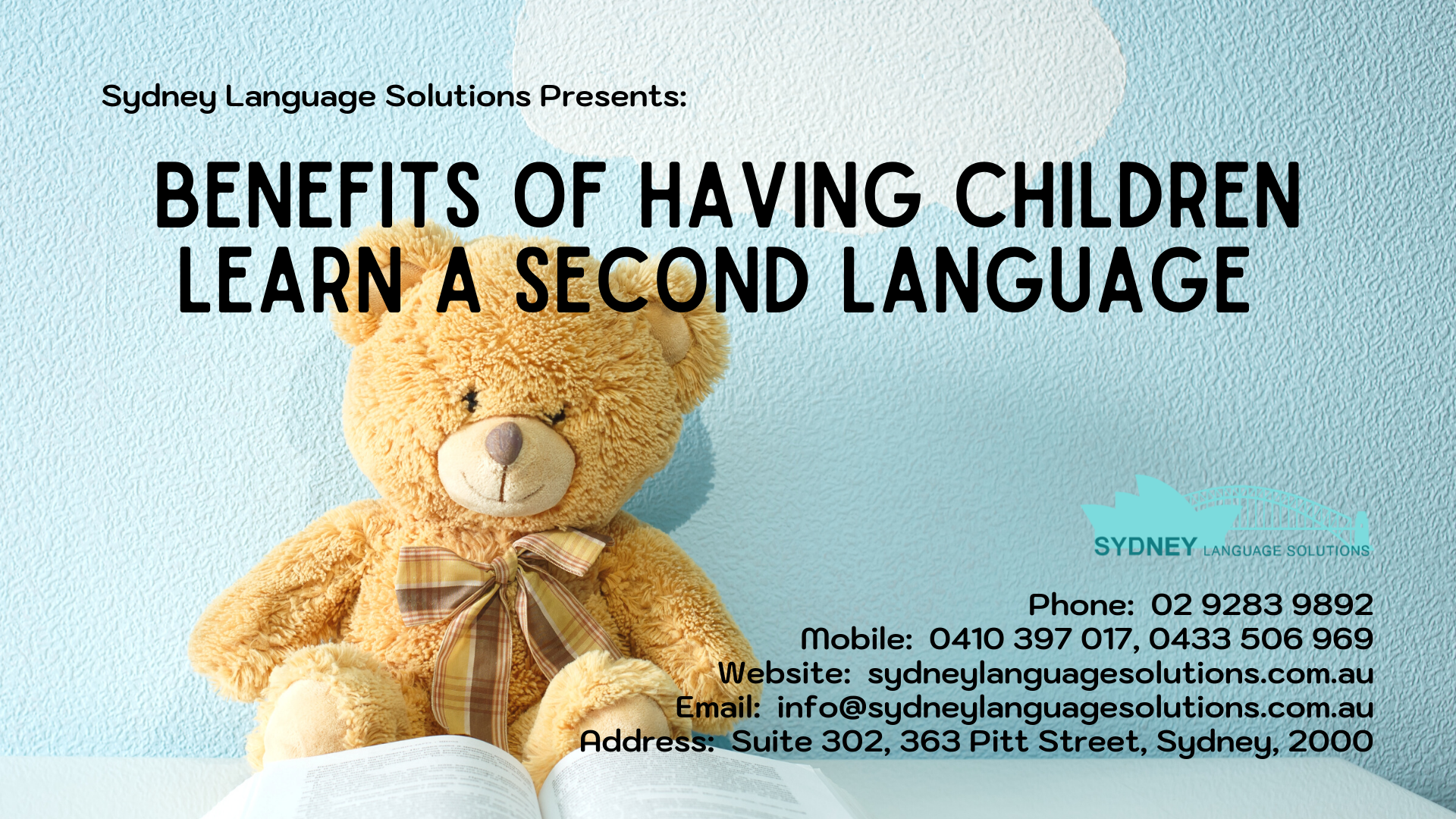Ways on How You Can Help Your Children Learn New Languages Faster
How you can help your child learn new languages faster:
- Make language learning a daily habit. Research shows that your child only needs 15 minutes a day to make progress while learning a new language. Some ways in which you can instill this habit in them is by making them listen to podcasts or watch a movie in a foreign language.
- Learn cognates. Languages like Spanish have a lot of words that we commonly use while speaking English. Learning these words will help your child transition better into the new language.
- Use flashcards and spaced repetition. Flashcards are proven to be the most effective way to memorize new languages. Flashcards use a concept called spaced repetition that basically prioritizes things your child does not know and helps them prioritize and work on their weak areas.
- Use a notebook and take it everywhere. Ask your kids to write down all the relevant vocabulary that you come across whenever your child is exposed to a new language.
- Speak the language from day one. There are 3 ways to achieve this. You can enrol your child in group learning in a good language school. This is great from a social perspective as your child will be studying with kids their own age and they can collaborate and work together on their skills.
This is where we can help you!
At Sydney Language Solutions we offer the best prices and deals for an atmosphere of fun and engagement in which your children can develop their language skills and aim towards a brighter future.
Advantages of Bilingual and Multilingual Children
INTERESTING FACTS ABOUT BILINGUAL/MULTILINGUAL CHILDREN:
– Better academic results: research has shown that bilingual/multilingual children can often concentrate better, have better problem-solving skills, understand language structure better and are better at multitasking.
– More diverse and interesting career opportunities later in life: employees speaking two or more languages can form better connections/relations with clients and other business partners. Therefore, multilingual candidates are preferred by employers.
– Children who speak more than one language have a better sense of self-worth, identity and belonging.
– Bilingual/multilingual children are said to be more educated since they can indulge in reading books written in various languages, enjoy movies and music in different languages.
– Children who learn foreign languages appreciate other cultures more and feel a sense of affinity while communicating with people from other countries.
BENEFITS OF LEARNING A FOREIGN LANGUAGE FOR CAREER GROWTH:
Learning starts at a very young age and learning new languages as a kid not only has a positive impact on your child’s personal growth, but it also gives them an edge in the professional world when they grow up.
Here are some advantages of learning foreign languages as a kid:
- Your kid will automatically become more attractive than other candidates when it comes to Global companies. In this dynamic world of globalization, employers are seeking candidates that are multilingual. International companies are trying t0 widen their reach across the globe and hire employees that can blend in with other cultures and fill in the communication gaps between the company and its clients.
- Career growth opportunities: being fluent in foreign languages doesn’t always mean your kid will have to go abroad. Many small local businesses prefer multilingual candidates who can help them explore new business opportunities and bring in more clients from other countries.
- Higher salaries: research shows that multilingual employees earn at least 10%-15% more than monolingual employees.
- Relationship building: having the ability to speak and understand different languages will allow your child to relate to various cultural groups at a personal level. Having a good relationship with colleagues is essential in a professional environment.
- Increased job opportunities: being fluent in foreign languages can be extremely beneficial for an individual’s professional growth. Many companies now require only employees who are bilingual or multilingual.
Benefits of Having Children Learn a Second Language
Why must children learn a new language from a young age?
- Experts say that children have more time and ability to pick up a new language faster than adults and develop a native-like pronunciation.
- Learning a new language also boosts a child’s creativity, problem-solving, critical thinking, and listening skills.
- In the long run, a second language will also be advantageous for them in the workplace where being multilingual gives one a competitive edge over others.
What makes our program different from other community language schools?
At some community language schools, the programs are designed to be beneficial if only both parents speak that particular native language at home for the children to have a chance to hear and practice the language. While this is advantageous for some children, others with only one parent who speaks language cannot have the chance to hear from their parents’ interaction. In fact, there are numerous households in Sydney with only one bilingual parent. In such circumstances, going to a language class with a structured program will help the students.
At Sydney Language Solutions, we offer language courses for children from all backgrounds, regardless of the number of parents who speak that language at home. These courses are also tailored for children whose parents are second-generation language speakers in Australia, or those parents who do not have enough background knowledge in speaking, reading, and writing their language to teach their children at home.
Compound Nouns
As you might know, the German language is famous for having ridiculously long words – the so-called compound nouns. I have read an interesting article in a Swiss newspaper that Germany’s longest word – Rindfleischetikettierungsüberwachungsaufgabenübertragungsgesetz – a 63-letter long title of a law regulating the testing of beef, has officially ceased to exist.
The word, which refers to the “law for the delegation of monitoring beef labelling”, has been repealed by a regional parliament after the EU lifted a recommendation to carry out BSE tests on healthy cattle.
German is famous for its compound nouns, which frequently become so cumbersome they have to be reduced to abbreviations. The beef labelling law, introduced in 1999 to protect consumers from BSE, was commonly transcribed as the “RkReÜAÜG”, but even everyday words are shortened to initials so Lastkraftwagen – lorry – becomes Lkw.
The longest word with a dictionary entry, according to Duden is at 36 letters, Kraftfahrzeug-Haftpflichtversicherung, motor vehicle liability insurance.
However a 39-letter word, Rechtsschutzversicherungsgesellschaften, insurance companies providing legal protection, is considered the longest German word in everyday use by the Guinness Book of World Records.
In theory, a German word can be infinitely long. Unlike in English, an extra concept can simply be added to the existing word indefinitely. Such extended words are sometimes known as Bandwurmwörter – “tapeworm words”. In an essay on the Germany language, Mark Twain observed: “Some German words are so long that they have a perspective.”
Did you know… The new pope eats Argentines?
I came across a newspaper article just after the new pope, Jorge Mario Bergoglio, was announced as the new head honcho of the Catholic Church.
So… is the new pope, Jorge Mario Bergoglio, a cannibal who favors his Argentinian fellow-countrymen as a delicious meal, just like the headline in a German newspaper suggested? Admittedly, I have no idea what kind of diet Francis, the 266th pontiff of the Roman Catholic Church prefers but I’m pretty sure that he is not after human meat. So you might wonder, why do I ask the question whether Pope Francis craves for humans for supper?
A German newspaper wrote: “Der neuePapstisstArgentinier”, which means “The new Pope eats Argentines”. Actually, (at least I’m pretty confident that’s the case) the writer of this newspaper articles wanted to say this: “Der neuePapstistArgentinier” (“The new Pope is Argentinian”). So, what led to this linguistic accident?
The conjugated forms (2nd and 3rd person singular) of the German verbs “sein” (to be) and “essen” (to eat) share one and the same sound chain, that is, “ist” and “isst” are so-called homophones – the pronunciation of both these forms is identical – but orthographically they mean two totally different things. In order to make sure that you do not walk right into the same trap, here’s an overview of the correct conjugated forms of both the German verbs sein and essen:
| sein (to be) | ||
| Singular | Plural | |
| 1st person | ich bin – I am | Wirsind – we are |
| 2nd person | du bist – you are (informal)Siesind – you are (formal) | ihrseid – you are (informal)Siesind – you are (formal) |
| 3rd person | er/sie/esist – he/she/it is | siesind – they are |
| essen (to eat) | ||
| Singular | Plural | |
| 1st person | ichesse – I eat | wiressen – we eat |
| 2nd person | du isst – you eat (informal)Sieessen – you eat (formal) | ihresst – you eat (informal)Sieessen – you eat (formal) |
| 3rd person | er/sie/esisst – he/she/it eats | sieessen – they eat |
As you can see, German shares one and the same form for English “you”, “she”, and “they”, which is “sie” and “Sie”, respectively. When you refer to your immediate counterpart in personal communication make sure to use a CAPITAL letter in formal address.
Unfortunately, the editor’s mistake is irreversible but one thing is for sure: he or she is most probably a laughing stock in the office and definitely among members of the language police. My final remark: Spell-check can save lives!
Danny Ruch – German Teacher
New Year’s Customs in Austria , Germany and Switzerland
GUTES NEUES JAHR – Happy New Year!
Austria
In Austria, New Year’s Eve is usually celebrated with friends and family. At exactly midnight, all radio and television programmes operated by ORF broadcast the sound of the Pummerin, the bell of St. Stephen’s Cathedral in Vienna, followed by the Donauwalzer (“The Blue Danube”) by Johann Strauss II. Many people dance to this at parties or in the street. Large crowds gather in the streets of Vienna, where the municipal government organises a series of stages where bands and orchestras play. Fireworks are set off by both municipal governments and individuals.
Germany
In Germany, parties are common on New Year’s Eve (Silvester). Fireworks are very popular, both with individuals and large municipal displays. Every year Berlin hosts one of the largest New Year’s Eve celebrations in all of Europe, attended by over a million people. The focal point is the Brandenburg Gate, where midnight fireworks are centered. Germans toast the New Year with a glass of Sekt (German sparkling wine) or champagne.
Since 1972, each New Year’s Eve, several German television stations broadcast a short comedy play in English (recorded by West German television in 1963) entitled Dinner for One. A line from the comedy sketch, “the same procedure as every year”, has become a catch phrase in Germany.
Switzerland
In some parts of Switzerland, Sylvester Clauses drive away evil spirits. In Urnäsch, in the canton of Appenzell Outer Rhodes, a colourful tradition continues to be practiced on the last day of the year. Strangely clad figures with elaborate masks and noisy bells move from house to house, in a bid to drive away evil spirits.
http://www.swissinfo.ch/eng/multimedia/video/Sylvester_Claus.html?cid=667924
All About German Language
Guten Tag (G’day)
Standard German is known today simply as “Hochdeutsch” (High German), and this is used almost always for written German. Books and newspapers are printed in standard German. “Hochdeutsch” is spoken by educated speakers everywhere; however, regional variants exist in the spoken language, for example, Swiss German in the majority of Switzerland.
German is part of the West Germanic group of languages within the Indo-European language family and is a close relative of English.
Some interesting facts about German:
– As is the case in many foreign languages, all nouns in German have a specific gender. German is different to a lot of the Latin languages though, in that it has not 2 but 3 genders – in addition to ‘masculine’ and ‘feminine’ it also has ‘neuter’.
- der – masculine
- die – feminine
- das – neuter
– Today German is spoken by more than 100 million people worldwide.
– It is spoken in Germany, Austria, a large part of Switzerland, Liechtenstein, Luxembourg, the South Tyrol region of Italy, the Opole Voivodship of Poland, parts of Belgium, parts of Romania and the Alsace region of France. Several former German colonies, such as Namibia, also have remaining pockets of German speakers.
– Following the American Wars of Independence, the Continental Congress convened in Philadelphia and considered adopting a new language for the future of the United States. When it came to the vote, English was chosen above German as the language of the new republic – reputedly only by one vote!
-The first printed book in the world was in German. Johannes Gutenberg invented book printing and printed the first book in the world – a 42-page bible – in 1455. Martin Luther had translated the Bible from Latin into German to make it available to common people – who could not read Latin – that language of the Church.
– German is often considered to be one of the most important cultural languages worldwide. Many famous musicians and scientists like Freud, Beethoven, Goethe, Mozart and Einstein wrote and spoke in German.
-German is the third most commonly taught foreign language worldwide.
As you can see, German is definitely a useful language to have in your repertoire. Due to its similarity to some English words, you will find that you can understand bits and pieces of a text straight away, even though they might be spelt and pronounced slightly differently. So, come and find out more about the German language and book yourself in for a German class at Sydney Language Solutions.
Bis Bald!
Danny Ruch – German Language Instructor







Latest Comments